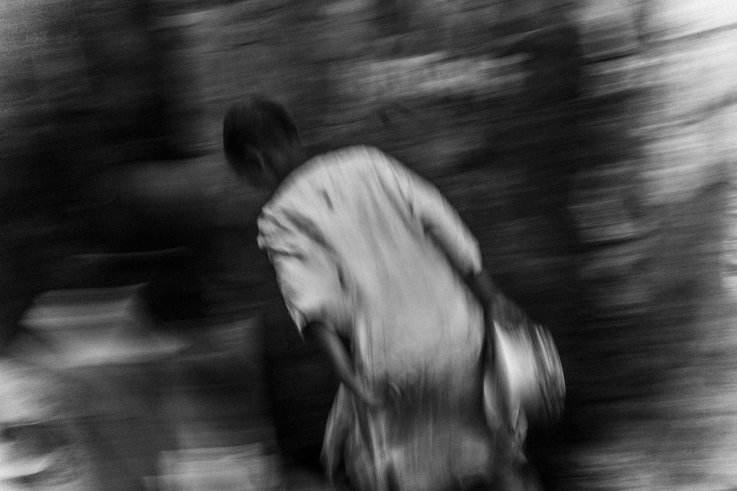The Truth About Child Trafficking in Senegal

In July 2009, I was in Guinea-Bissau covering the presidential elections after the murder of president Nino Vieira when I first heard stories about Guinean children who were taken to Senegal to work and beg for Koranic teachers. Many of them disappeared while playing in remote areas; others were given by their parents after false promises made by the local marabouts—religious teachers or guardians.
These stories stayed with me. In early 2015, I started planning an in-depth project about what was happening in Senegal, and made contact with Human Rights Watch and Senegal's Ministry of Justice. Across the country, there is a tradition of sending boys ages 5 to 15 to Koranic boarding schools known as daaras. In reality, the boys—known as talibés—are forced to spend more than eight hours a day begging in the streets for money, rice and sugar for their marabouts. The rest of the time, they are locked inside squalid buildings learning the Koran, while the marabout collects their daily earnings with no fear of being investigated or prosecuted.
Parents often send their children to daaras to study the Koran simply because they can't afford education. But what is presented as a form of education is often a cover for the exploitation of these children. In addition to being forced to beg, the talibés are beaten, raped by their marabouts or older talibés, chained to the ground so they can't run away, and live in overcrowded and unsanitary conditions. Malaria, skin diseases, breathing problems and stomach parasites are common.
From May 16, 2015 until June 4, I visited daaras around Senegal: in Dakar, Medine, Rufisque, Keuer Massar, Diamaguene, Saint Louis and Touba. After that, I spent nearly two weeks in Guinea Bissau, visiting shelters, families and border points to track the phenomenon of child trafficking. I was based in Bissau but traveled to different regions; I had permission to follow the Guinean army, who are also making efforts to clamp down on child trafficking.
According to a Human Rights Watch report, the number of talibés is increasing; more than 30,000 boys are forced to beg in the Dakar region alone. Most of them are Senegalese, but the number of children from neighboring countries like Guinea-Bissau has increased.
Though Senegal adopted a law in 2005 prohibiting forced begging and trafficking, only a handful of cases have been prosecuted. In July 2015, the government anti-trafficking unit took its first census of over 1,000 Koranic schools, but the unit lacks the means to check every daara, and the police do not know exactly how many of them exist. The daaras are highly unregulated—set up in abandoned buildings and unfinished construction projects. The Senegalese parliament has yet to pass a draft of the law regulating these schools, and does not have a scheduled date for discussion. Every year on April 20, the country observes National Talibé Day and the government discusses the situation, but progress has been slow. I hope that by publishing my pictures, we can bring attention to what is happening. After all, the abuse is in plain sight.



